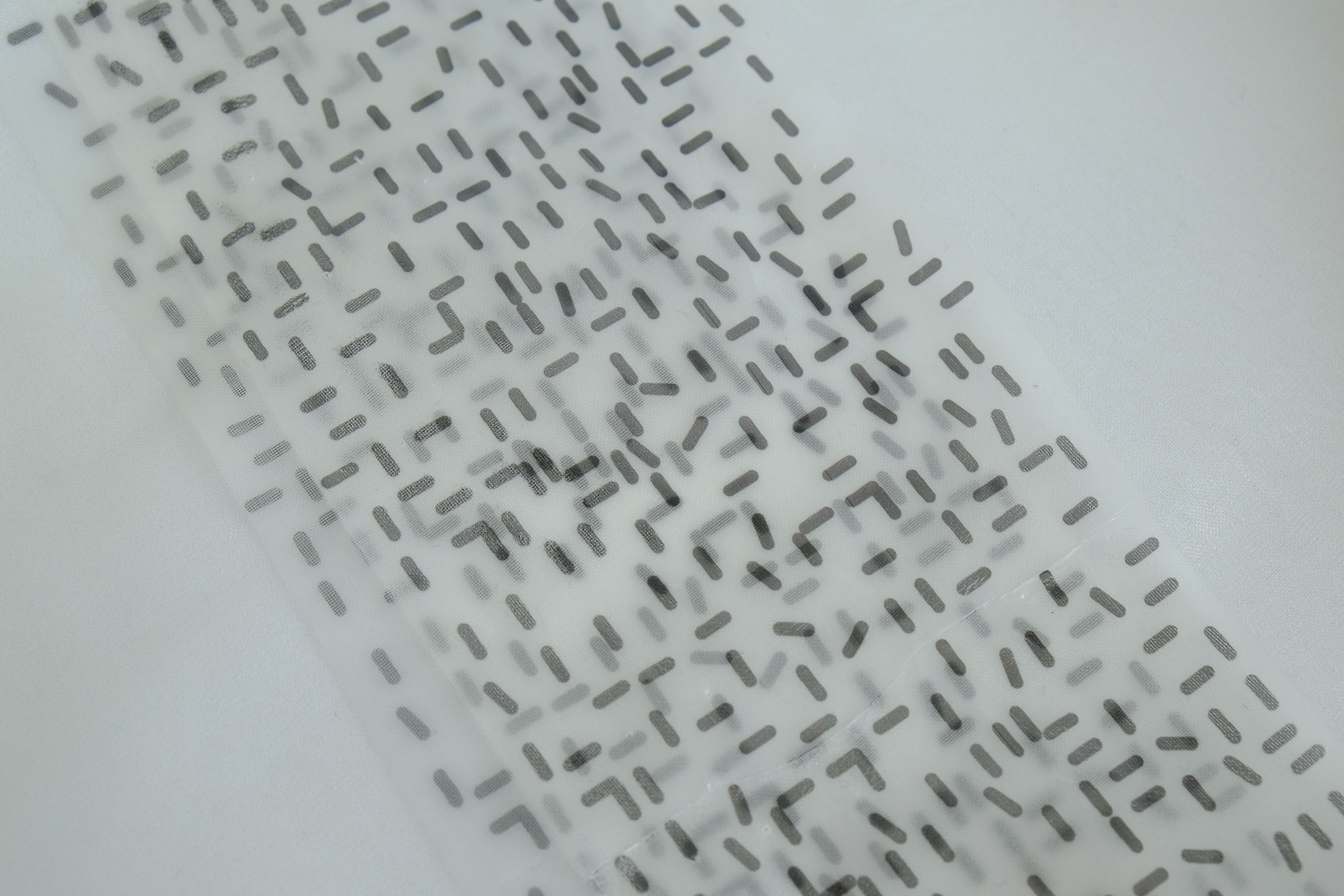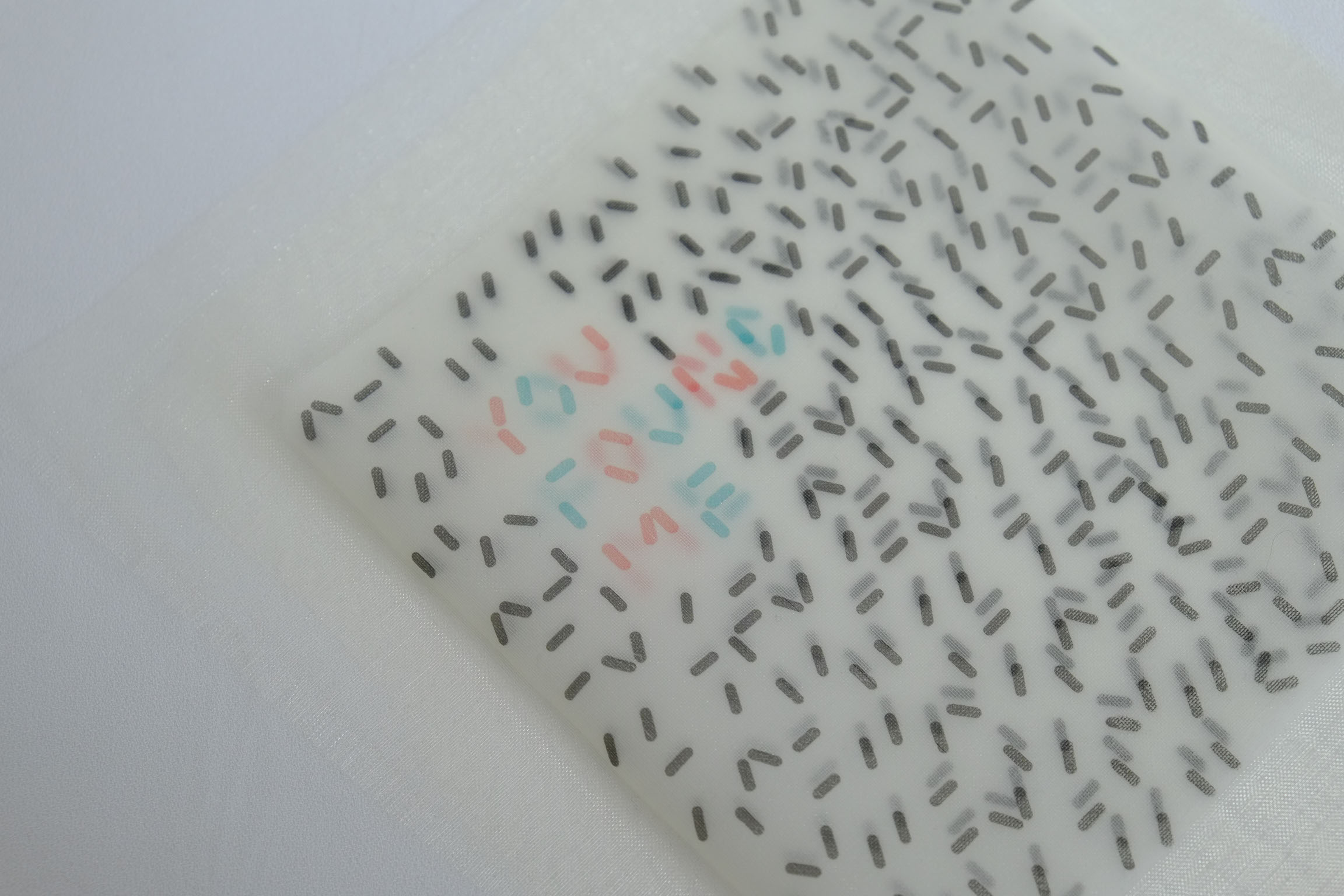%20-%20copy.jpg?crc=4089694366)


FINAL BACHELOR PROJECT - IUGO
Course
Date
Expertise Areas
Learning Points
DPB390 Final Bachelor Project
June 2020
Creativity and Aesthetics, User and Society
Exploratory Making, Resourcefulness, User Research Methods, Organization and Planning
Description
Clothing is a means to project our personality and style outwards. There is little personal attachment to clothing which can cause clothing to be discarded and replaced quickly. Adding personal value to clothing can increase person-product attachment, which prolongs the lifespan of clothing.
I present IUGO, a layered pattern that conceals and reveals personally meaningful text in clothing. The pattern is designed to conceal the message when the two layers of fabric holding the pattern are not aligned correctly. Continuation and similarity guide the user in aligning the pattern correctly and revealing the text. It is up to the wearer whether the message is visible to the outside world, only visible to them or only visible when the piece of clothing is off the body.
The pattern is a safe method of encrypting a meaningful message into your clothing yet making it available and readable if desired.
Reflection
Influence from past
Previously followed courses that influenced the way I worked during my Final Bachelor Project (FBP) most are project 2 design and project 3 research. Project 2 design was my first time working in the Crafting Everyday Soft Things squad which opened my eyes to exploratory making. Project 3 design was a hands on lesson in user testing on sensitive or emotional subjects.
Competency Development
During the Final Bachelor Project (FBP) my focus was on developing the expertise areas ‘Creativity and Aesthetics’ and ‘User and Society’. Other expertise areas were also implemented.
Creativity and Aesthetics
Though this was already extensively explored in previous projects, my FBP has shown me the importance of pushing through and making things in times of doubt. Using basic household materials and ideating on how they could be used is an amazing way to spark new ideas. The project has taught me that it is not necessary to have access to professional machinery or materials in order to create interesting and surprising designs. Furthermore I learned the importance of using different design perspectives. The project was mostly done using a first person perspective but co-design and research were also used where appropriate.
User and Society
Initially I was worried about doing user tests in a socially distanced world.
However, I feel that the disconnect forced me to create online user testing methods that felt warm and welcoming to participants in order to receive similar results as I would in real life settings. I developed skills that I did not have yet instead of relying on regular communication cues.
Professional Skills development
A goal of mine was to increase my remote communication skills. Through digital interviews, surveys and social media I have been able to go through the design process as I usually would without too many compromises. Furthermore I learned to be proactive in directing my learning, in organizing and planning and in finding outside parties to interact with for my project. The people I contacted had a different perspective on the project that helped me make it more well-rounded.
Design Vision and Professional Identity
Throughout the project it became increasingly clear how important an exploratory making approach is to me as a designer. The project has further enabled me to define my identity and vision and connect them to each other. In order to make meaningful products it is important to have a deep understanding of the user which is only possible through observing and empathizing with them. The project helped me see what it is that really drives me: making beautiful, dynamic and surprising textiles.
RETURN TO HOME PAGE
ANNE LAMERS
Eindhoven
The Netherlands
© 2020 Anne Lamers
CONTACT INFO
anne.lamers98@gmail.com
+316-28817733
annelamers.com